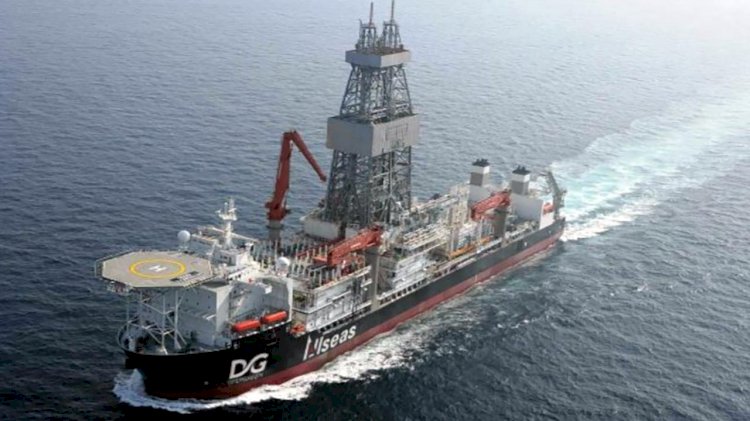Allseas acquires ship for deep-sea polymetallic nodule collection

Allseas has acquired the former ultra-deepwater drill ship “Vitoria 10000” for conversion to a polymetallic nodule collection vessel. She is 228 m long, 42 m wide, and can accommodate 200 people.
In partnership with DeepGreen Metals Inc., Allseas is developing a deep-sea mineral collection system to responsibly recover polymetallic nodules from the ocean floor and transfer them to the surface for transportation to shore. The nodules contain high grades of nickel, manganese, copper and cobalt—key metals required for building electric vehicle batteries and renewable energy technologies.
The ship will be converted to accommodate the pilot nodule collection system currently being engineered by Allseas. As a former drill ship, her configuration is well-suited for modifications that will enable the deployment at sea of a 4.5 kilometre-long riser currently being developed by Allseas. After the nodules have been collected and taken to shore they will be processed using a metallurgical flowsheet developed by DeepGreen.
The strategic acquisition of the vessel represents a key milestone for the partnership, which leverages the world-leading offshore engineering capabilities of Allseas to propel DeepGreen’s mission to source the metals needed for a more sustainable future with less environmental and social impact.
Allseas Founder and President Edward Heerema says:
“Allseas is excited to be involved in the exploration of the deep ocean for these important metals. Deep-sea polymetallic nodule collection represents a new frontier and a new exciting chapter in Allseas’ history. With our offshore expertise and innovative capability, we can develop creative technical solutions for this new industry.”
Allseas expects the vessel to be operational for pilot nodule collection tests by mid 2021. DeepGreen Chairman and CEO Gerard Barron said:
“To have partners like Allseas bring their engineering excellence and passion to help get this industry started makes us, and the industry, very fortunate. The green transition is going to require hundreds of millions of tonnes of nickel, copper and cobalt, and our research shows that ocean polymetallic nodules could provide society with these critical minerals at a fraction of the environmental and social impacts associated with land-based extraction.”
In partnership with the world’s leading ocean scientists, DeepGreen is currently undertaking the world’s largest integrated ocean surface-to-seabed research program to fully understand the impact of collecting nodules from the ocean floor. In addition to generating new scientific knowledge of the Pacific Ocean, insights generated from this research will enable Allseas to design technology solutions that minimize environmental impact of nodule collection operations.



























